Should Artists Take a Stand? Glastonbury’s Political Dilemma Amid Outcry Over Israel
Olivia Rodrigo closes a tense edition of the UK festival, where music and politics collided onstage
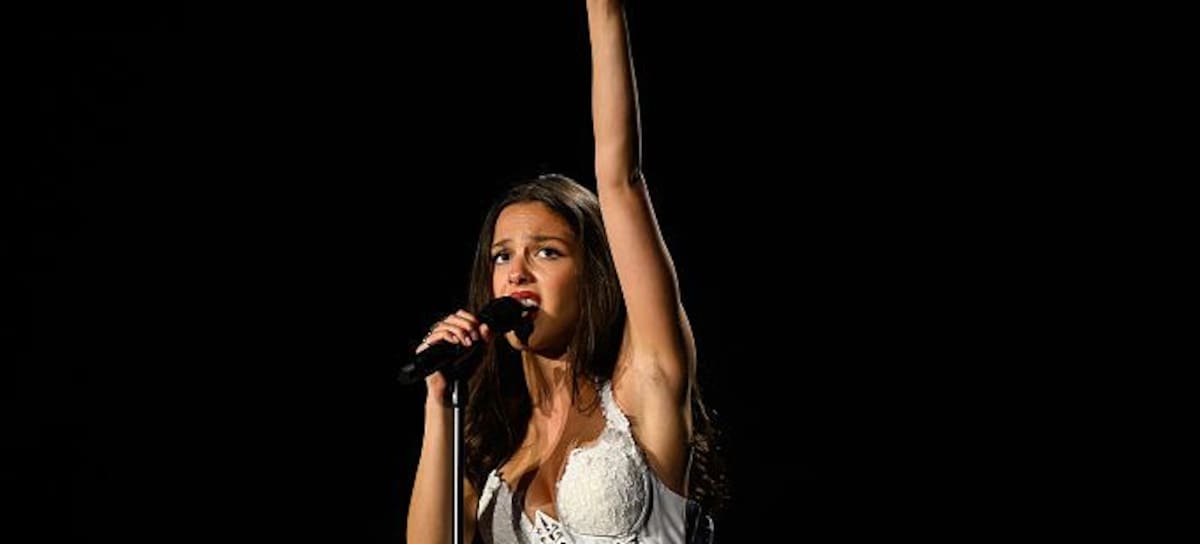
GLASTONBURY, ENGLAND - JUNE 29: Olivia Rodrigo performs iin the headline slot on the Pyramid Stage at the end of day five of Glastonbury festival 2025 at Worthy Farm, Pilton on June 29, 2025 in Glastonbury, England. Established by Michael Eavis in 1970, Glastonbury has grown into the UK's largest music festival, drawing over 200,000 fans to enjoy performances across more than 100 stages. In 2026, the festival will take a fallow year, a planned pause to allow the Worthy Farm site time to rest and recover. (Photo by Leon Neal/Getty Images)
Olivia Rodrigo closed out the most politically charged edition of the Glastonbury Festival 2025 in recent memory with a vibrant, emotional performance on the festival’s iconic Pyramid Stage. The 22-year-old singer delivered a set packed with hits from her albums SOUR and GUTS, wrapping up a weekend where the main question wasn’t about music — it was about politics: Should artists use their platform to speak out on global crises like the war in Gaza?
This year’s Glastonbury was defined as much by protest as by performance. Since Friday, several artists openly condemned Israel’s military campaign in Gaza and called for the liberation of Palestine. Irish rap group Kneecap showed their support for Palestine in front of an audience full of Palestinian flags, while punk duo Bob Vylan led chants of “Free, free Palestine” and the more provocative “Death, death to the IDF” (Israel Defense Forces).
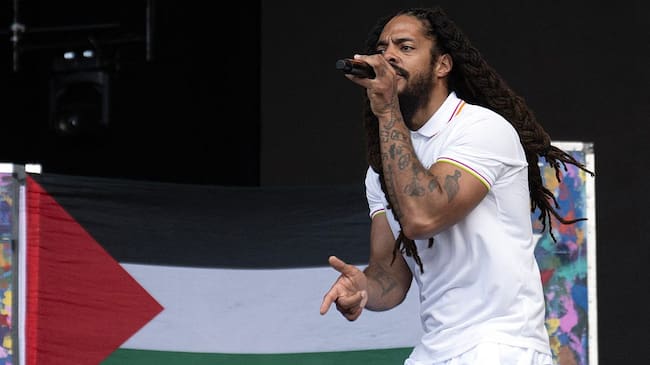
To the backdrop of a Palestinian flag, Bobby Vylan of British duo Bob Vylan performs on the West Holts Stage on the fourth day of the Glastonbury festival at Worthy Farm in the village of Pilton in Somerset, south-west England, on June 28, 2025. Oli SCARFF / AFP via Getty Images
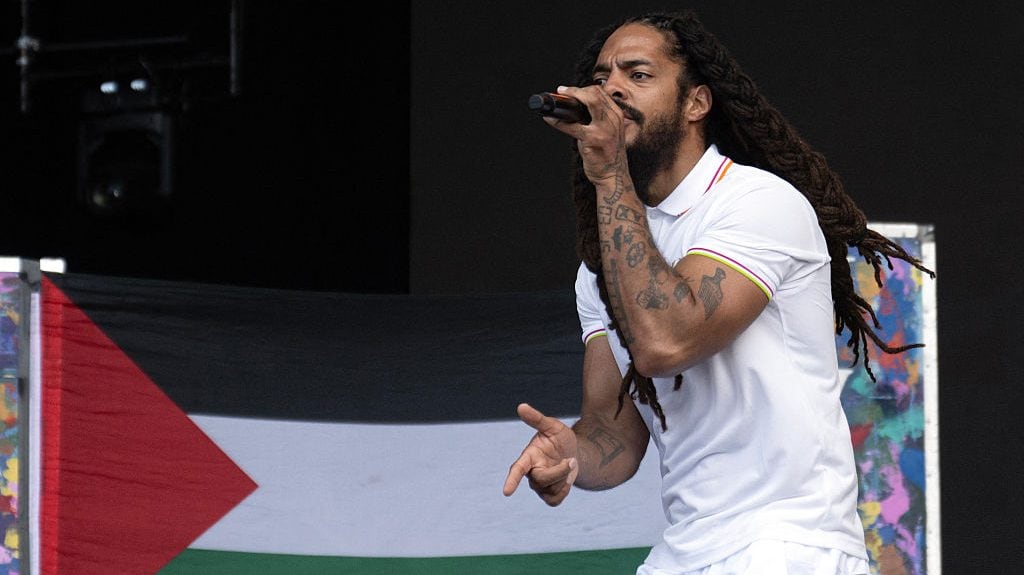
To the backdrop of a Palestinian flag, Bobby Vylan of British duo Bob Vylan performs on the West Holts Stage on the fourth day of the Glastonbury festival at Worthy Farm in the village of Pilton in Somerset, south-west England, on June 28, 2025. Oli SCARFF / AFP via Getty Images
Rodrigo, who made no overt political statements during her set, focused on the emotional core of her music. One of the night’s most celebrated moments was the surprise appearance of The Cure frontman Robert Smith, with whom she performed two of the band’s classics: Friday I’m in Love and Just Like Heaven. But even that unforgettable collaboration couldn’t fully eclipse the festival’s politically charged atmosphere.
Gaza: A Humanitarian Catastrophe Unfolding in Real Time
The protests didn’t arise in a vacuum. The humanitarian situation in Gaza has reached catastrophic levels. According to Gaza’s Health Ministry, more than 56,000 Palestinians have been killed and more than 125,000 injured since Israel launched its military operation in October 2023.
The United Nations reports over 400 people have been shot while attempting to access food distribution sites, with at least 600 killed in similar incidents. Continued restrictions on humanitarian aid and the closure of key border crossings have pushed Gaza to the brink of famine, a situation the UN warns may constitute a war crime. UN experts have referred to the scale of civilian suffering and targeted destruction as genocide.
Many artists and fans feel the need to take a stand given the scale of the conflict. Can a global event like Glastonbury afford to stay on the sidelines as tens of thousands of civilians, many of them women and children, die in what human rights organizations call a mounting humanitarian disaster?
Glastonbury’s performances highlight a dilemma facing global stars: Can they really continue as if nothing is happening? Is it fair to ask them to remain neutral when the world is watching?
This dilemma isn’t limited to Israel’s conflict but extends to any political crisis affecting society — including artists. Whether it’s the war between Ukraine and Russia, or more recently, the impact of Trump’s immigration policies and the mass detentions by ICE.
The Costs of Speaking Out
It would be unrealistic to say that taking a political stance has no social or professional consequences for artists and celebrities, or that it’s easy to take a position when you’re in front of millions of eyes.
Taking a political stand can carry serious professional and personal repercussions. Celebrities who have voiced support for Palestine in recent months —like supermodel Bella Hadid — has faced intense backlash, including death threats, lost brand deals, and campaigns calling for their removal from fashion and media events. Hadid, one of the most vocal pro-Palestinian voices in fashion, reportedly lost contracts and was sidelined by major brands. Actress Susan Sarandon and singer Kehlani also faced industry blowback — Sarandon was dropped by her talent agency, and Kehlani saw her U.S. concerts targeted by protestors and promoters.
Similarly, on the issue of immigration and ICE’s mass detentions, celebrities like Kim Kardashian, Pedro Pascal, and rapper Doechii have publicly criticized U.S. immigration policies. Their outspokenness has sparked both support and backlash, illustrating that standing up on controversial issues can be a double-edged sword for public figures.
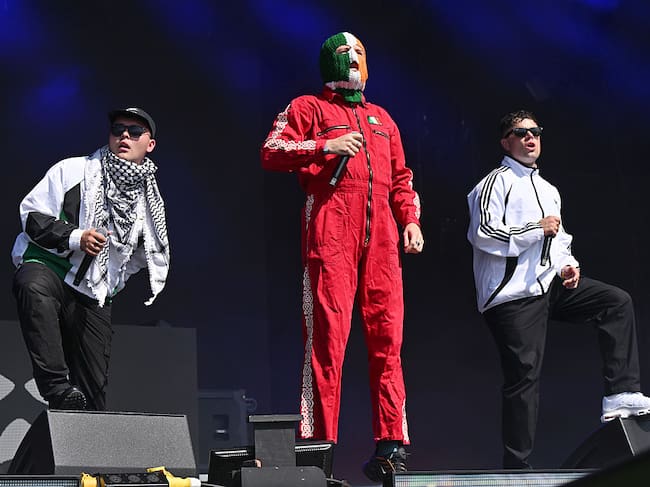
Mo Chara, DJ Provaí and Móglaí Bap of Kneecap during day four of Glastonbury festival 2025 at Worthy Farm, Pilton on June 28, 2025 in Glastonbury, England. Established by Michael Eavis in 1970, Glastonbury has grown into the UK’s largest music festival, drawing over 200,000 fans to enjoy performances across more than 100 stages. In 2026, the festival will take a fallow year, a planned pause to allow the Worthy Farm site time to rest and recover. Leon Neal/Getty Images / Leon Neal
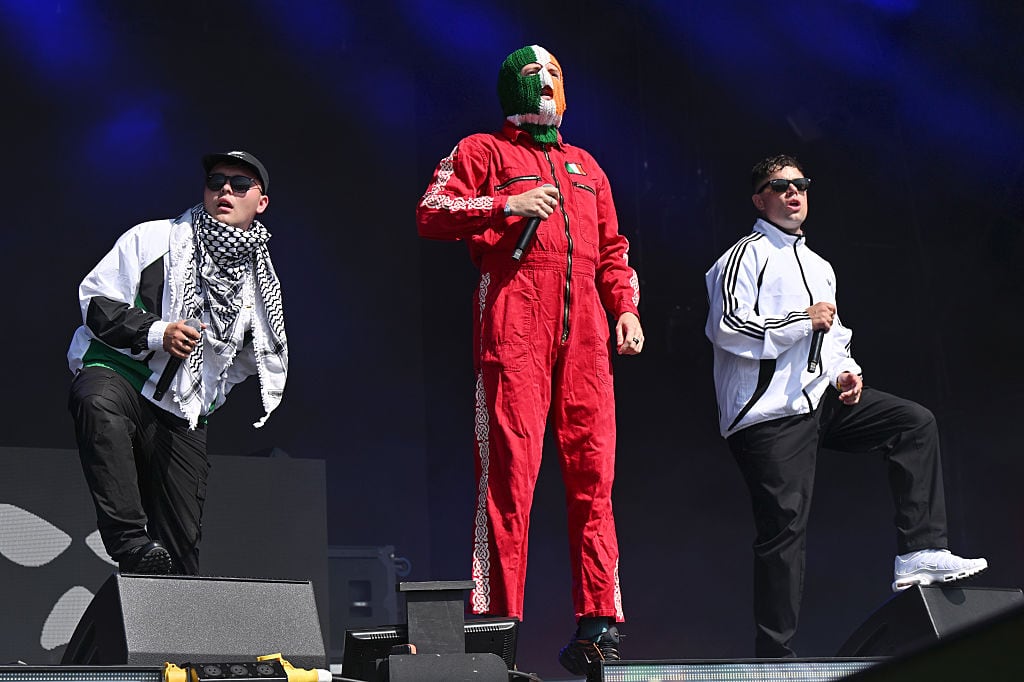
Mo Chara, DJ Provaí and Móglaí Bap of Kneecap during day four of Glastonbury festival 2025 at Worthy Farm, Pilton on June 28, 2025 in Glastonbury, England. Established by Michael Eavis in 1970, Glastonbury has grown into the UK’s largest music festival, drawing over 200,000 fans to enjoy performances across more than 100 stages. In 2026, the festival will take a fallow year, a planned pause to allow the Worthy Farm site time to rest and recover. Leon Neal/Getty Images / Leon Neal
Irish rap group Kneecap, who waved a Palestinian flag onstage at Glastonbury, faced calls for removal from the lineup and legal scrutiny in the UK, with right-wing politicians demanding investigations under counter-terrorism laws. Historically, the stakes have been high: the Dixie Chicks were blacklisted from country radio and lost key sponsorships after criticizing President George W. Bush in 2003. Even when backlash fades, reputational damage can linger — labels, sponsors, and platforms often distance themselves, and fans may turn away.
Yet some artists have demonstrated that speaking out can also energize support and renew fan loyalty. Taylor Swift broke her political silence in 2018 by endorsing candidates in the U.S. midterm elections and speaking against discriminatory policies, saying, “If the people in power don’t make changes, then it’s up to us.” She again took a public stand in the most recent U.S. elections, joining other celebrities like Billie Eilish, Ariana Grande, Cardi B or Eminem in encouraging voter participation and political engagement. Her moves energized her fanbase and sparked widespread conversation about celebrity activism. Still, it remains a high-stakes gamble: speak out or stay silent — and risk being seen as complicit.
What happened this weekend at Glastonbury was about more than just music. It reflected a broader debate shaking the cultural world: Can art remain apolitical in a world that is not?
Ana Rojas
Periodista en LOS40, coordinando LOS40 USA y colaborando también en El País. Cubro temas de música,...
